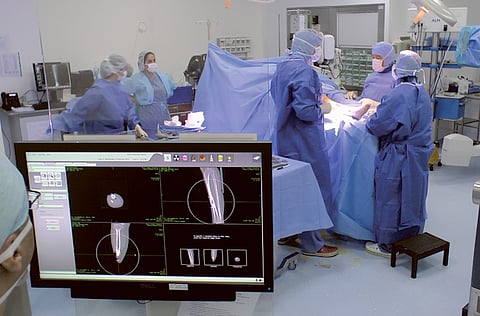UAE is again primed for return of medical tourism
Its handling of pandemic has given healthcare sector booster shots of confidence

As we gradually inch towards a year of living with COVID-19, our world has undergone a stark metamorphosis from what it was. The healthcare sector, like any other, has had to reassess its priorities, make constant adjustments to suit the shifting patterns, and model itself as per the needs of the day.
Among the many casualties it faced was the severe setback – and often a complete pause – of medical tourism due to travel restrictions and patients’ fear of hospital visits.
Fortunately, emerging from the pandemic we can now witness an early revival of medical tourism. I speak for the UAE in particular, where astute decisions to curtail the virus and effective precautionary measures have catalysed the revival.
Building on this, the UAE is creating a reliable eco-system favourable for medical tourism to thrive once again. Having said that, we will probably see a slightly altered version to suit the situation.
Saturation testing
Among its biggest feats, UAE’s decision to make private hospitals COVID-19—free has been instrumental in bringing about this change. When we look at other preferred medical tourism destinations in pre-pandemic days, we see a clear contrast between their approach and the UAE’s, giving the country an edge.
The structured, practical, and assertive approach that UAE took has set an example for the rest of the world. Aggressive screening, combined by stringent SOP protocols set the ball rolling, with approximately 80,000 to 100,000 people being screened across the UAE on a daily basis.
Keep them apart
Asymptomatic patients who tested COVID19—positive were immediately quarantined either at home, or in apartments and hotels supported by the government. This ensured that there was lesser traffic of these patients in hospital premises. And ICU beds were not unnecessarily occupied – a contrast from neighbouring countries where majority of ICU beds housed COVID-19 patients.
Moreover, a few government hospitals and select private hospitals in the UAE were designated to treat patients, leaving the rest COVID-19—free to handle other patients.
A confidence inject
This last measure in particular was tremendously important in re-building patients’ confidence in visiting hospitals again. Already, we’re observing a revival in hospital visits, with people approaching for regular consultancy, surgeries and other primary and tertiary care.
Paediatric care, for example, which requires regular monitoring had suffered under the pandemic, but now we can see people returning to book appointments.
Support systems
These measures have been crucial in building confidence among international patients as well. Airlines are also gradually returning to business-as-usual – or as close as possible – keeping all SOPs in place, while hotels are practicing stringent hygiene control following international best practices.
Likewise, malls, F&B and other entertainment industries are back in business, creating a much-needed tourism eco-system. All this is contributing to an environment giving a boost to medical tourism in the UAE. In RAK Hospital itself, we have seen an increasing number of medical tourists and enquiries in the past month.
Further, the emergence of telemedicine as a key communication tool to promote medical tourism cannot be underlined enough. With the world shifting to virtual platform amid travel restrictions, telemedicine surfaced as the primary means to forge a regular contact between patients and healthcare professionals.
Slow build up
I have always believed that a large number of medical tourists need not travel but use telemedicine for initial procedures. In this context, we have already begun free tele-consultation to familiarise medical tourists with this route.
Doctors, too, are actively using the platform to showcase their work through virtual CMEs further cementing the confidence in telemedicine. Given time, this may convert into a profit-making prospect.

- Dr. Raza Siddiqui is Executive Director, RAK Hospital.
Sign up for the Daily Briefing
Get the latest news and updates straight to your inbox







